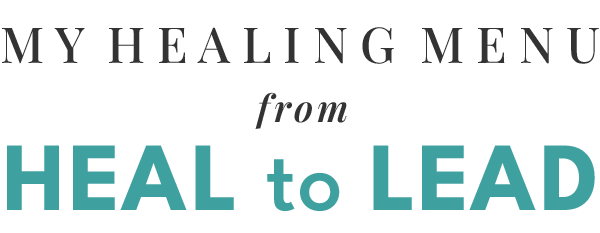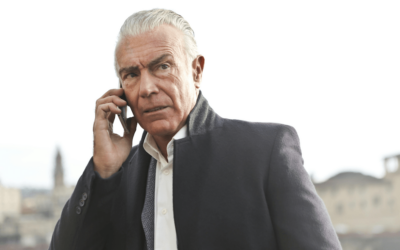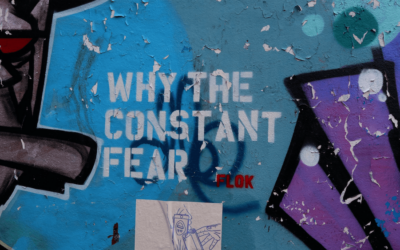MetaCognition:
Subheader here
Lorem ipsum dolor sit amet consectetur adipiscing, elit ad orci donec vitae malesuada, lacinia pretium auctor nunc parturient. Donec et at dignissim nostra eget lacinia ornare urna quis, interdum integer sapien luctus pulvinar nisl morbi purus.
Relational Discernment and Depth of Connection
Instead of maintaining the status quo and accepting survival, how much more alive would we feel if we chose meaningful relationships over all else? This article first appeared in “THE NEW TLC: Trauma, Leadership, and Consciousness” on Substack.
Many Confident Leaders Resist Change — And These 5 Emotional Wounds Could Be to Blame
Five core emotional wounds keep low-conscious leaders from embracing the uncertainty of change, which can stunt the growth and innovation of their organizations — and negatively influence employees, culture, and the bottom line. This article first appeared in Entrepreneur.
Designing Moments of Joy for Our Inner Child
Where do you default to survival mode and prepare for the absolute grind versus creating space for magic, awe, and wonder to surprise and delight you?
2024: The Year of the Great Wake-Up?
As we stand at the edge of 2024, a year that holds the promise of a collective awakening, the importance of prioritizing mental wellness and engaging in inner work has never been clearer. Let this be the year when individuals, leaders, and communities find each other and co-create new cultural norms that value emotional well-being, paving the way for a brighter and more compassionate future for us all.
Unintegrated Trauma: How to Improve Communication by Understanding Stress Responses
Often without our conscious awareness, trauma manifests in our bodies. To become truly conscious leaders, we must bring compassion and curiosity to our own wounding as well as that of others. This article first appeared in Entrepreneur.
Releasing Trapped Trauma: Practicing Somatic Awareness for Emotional Liberation
Somatic emotional release provides tools to increase self-awareness, discharge trapped energy, and return to the state of being that feels like homeostasis. Somatic practices guide us home into the wisdom of the body, releasing trapped trauma so we can live, lead, and communicate with greater capacity for ourselves and others.
How to Cultivate a Coach Mindset and Explorative Listening
The core techniques of a coaching approach revolve around mindset, intentional presence, and a listening-centered methodology focused on forming a trusting partnership. Implementing even a few of these tools and techniques into tense conversations can set you on the path to more conscious and constructive business communication.
The Elon Musk Interview: Trauma’s Impact on Leadership
Delving into the low-conscious characteristics displayed during Elon Musk’s interview with Andrew Ross Sorkin at the New York Times Dealbook Summit on November 29, 2023, this piece explores the link between his childhood trauma and his leadership style.
How to Lead with Compassion During Traumatic Times
Afraid of getting it wrong, most leaders remain silent about collectively traumatizing events. While that’s no longer an option, it can be hard to know where to begin, so here are five actionable considerations for organizational leaders. This article first appeared in Entrepreneur.
Burnout Is Not Preventable — Here’s How to Address Its Underlying Cause Instead
Burnout cannot be prevented with sabbaticals or self-care regimens. Instead, it requires healing past emotional wounds to increase self-worth and self-value, the ability to set healthy boundaries, and a clear commitment to how we want to live and lead. This article first appeared in Entrepreneur.
Why Trauma Integration Will Give You a Competitive Advantage in Leadership
For those who do deep, personal work to heal and integrate their past trauma, there is a distinct competitive advantage that they have as business leaders—and even more benefits to the people and organization they lead. This article first appeared in Entrepreneur.
Are You a Fear-Based Leader? Unveiling the Link Between Fear-Based Management and Childhood Trauma
Leaders who lead through either control or people-pleasing do so for reasons that can be traced back to childhood trauma. Self-recognition of these patterns is the first step toward breaking fear-based management cycles in favor of influencing healthier work environments. This article first appeared in Entrepreneur.
Defunding DEI and the Threat of Low-Conscious Leadership
For DeSantis and other low-conscious politicians, the lives of people who are different from them are easily disregarded. But for leaders who aspire to make positive changes in a country that sometimes seems so severely broken, we can learn from these actions, using them as antithetic examples of real leadership.
Healing Trauma: Why It’s Fundamental For Effective Leadership
The implications of childhood trauma are complex, especially in the realm of leadership. Early psychological wounding almost always manifests as toxic, or low-conscious leadership. Healing past trauma is imperative to becoming a more effective and high-conscious leader. This article first appeared in Forbes.
Could Entrepreneurship Be a Trauma Response?
I believe that entrepreneurship can be a trauma response for many of us, in that we try to fulfill unmet needs from childhood. I have come to understand that starting a digital marketing agency was my attempt at recreating an environment in which I was valued. This article first appeared in Entrepreneur.
What Makes Conscious Leaders Different and More Effective?
Today’s conscious leaders are smart, self-aware and fully adept at what they do. Perhaps most importantly, they are active participants in the growth of those whom they lead. How does this translate into organizational success — and ‘good business’ in general?
Prioritizing Play and the Quest for a Freedom-Focused Mindset
Philosophy has been saying it for years, but now science and our health experts also back up the theory about leading a more integrated life: we need to play more as adults. COVID, the light shone on systemic racism and the polarity of the presidential election provided us an opportunity to reevaluate many things in our lives. If we continuously decide and convey our values by what we choose to prioritize, what kind of life are you living?
What Wild Horses Taught Me About Trust and Love
If more of us can begin to show up fully to and for others—by being genuine, by trusting at the onset, by communicating honestly about our fears and our willingness equally—how would the world start to change from an energetic perspective?


















